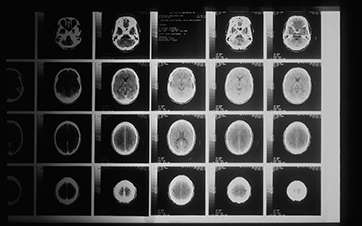
There is another statistic that makes Connecticut an even more desirable place to live. According to the National Cancer Institute's State Cancer Profiles, cancer is less prevalent in Connecticut than in other states. However, the incidence of brain tumors and other nervous system cancers is slightly higher.
Join us as we spend a few moments digging into the figures on brain tumors in Connecticut and see what they tell us.
Brain Tumors in Connecticut
The National Cancer Institute collects data on all cancer sites in the body from every state nationwide. This includes brain cancer statistics. However, when we try to find out exactly how many brain tumors people in Connecticut, and the rest of the country, develop each year, we hit a wall.
The Difference Between Brain Tumors and Brain Cancer
That's because while all brain cancers are tumors, not all brain tumors are cancerous. So therefore, there isn't an exact correlation between the number of people with brain cancer and the number of people with brain tumors.
To illustrate, if you are suffering from severe headaches, your doctor cannot diagnose a brain tumor based on symptoms alone. They may refer you for a brain scan. Doctors use both MRI and CT scans to diagnose brain tumors.
The scan may reveal that you have a brain tumor. However, that does not mean that you automatically have brain cancer.
According to Johns Hopkins Medicine, around 30% of brain tumors are meningioma. Very often, they are benign, and not all cases need surgery. You may need to have a biopsy to confirm that the tumor is not cancerous.
The Missing Statistic
These non-cancerous brain tumors are not included in the statistics gathered by the National Cancer Institute. Therefore, we cannot say for certain how prevalent all types of brain tumors are in Connecticut.
The Prevalence of Brain Cancer in Connecticut
As mentioned at the outset, the US cancer rate stands at 149.4 deaths per 100,000 population, while the Connecticut rate is 136.3. For cancers of the brain and other nervous system (ONS), the statistics are similar. The United States average is 4.4 per 100,000, and the Connecticut average is 4.5.
When we dig a little deeper into the statistics, we find that all of Connecticut's 8 counties have stable brain cancer rates, unlike the national rate, which is slowly rising. However, not all counties are equal.
Litchfield County has the highest prevalence of brain cancer, at 5.5 per 100,000. Yet the two counties with the lowest rates, Fairfield County and Windham County, report just 4.0 per 100,000.
The American Cancer Society estimates that in 2023, there will be 290 new cases of brain and other nervous system cancers in Connecticut. Additionally, they estimate that these cancers will cause 230 deaths.
Estimating the Prevalence of Brain Tumors in Connecticut
Although there are no official statistics on non-cancerous brain tumors in Connecticut, we can estimate their incidence. According to the American Brain Tumor Association, 29.7% of all brain tumors are malignant.
Based on the incidence of brain and ONS cancer in Connecticut, we estimate a non-malignant brain tumor rate of 10.65 per 100,000 population. However, this is only an estimate based on the current data available.
Types of Brain Cancer
There are many different types of brain cancer, and thankfully some are very rare. The four most common types of brain tumors are:
- Metastatic
- Meningioma
- Glioblastoma
- Astrocytoma
Metastatic Brain Tumors
These tumors are secondary cancers arising from cancers that begin elsewhere in the body. Depending on their location, there are several treatment options. Two of the most common are surgical removal and gamma knife, which is a type of radiation therapy.
Meningiomas
These tumors form in the meninges, which are the membranes that protect the brain. They are often slow growing and may not cause symptoms. Again, surgery and radiation therapy may be used to remove them.
Glioblastoma
Glioblastoma is a primary cancer that originates in the brain. Currently, it is one of the most deadly forms of brain cancer. If you are diagnosed with this type of tumor, you may need a combination of surgery, radiation therapy, and chemotherapy to treat it.
Astrocytoma
Another primary cancer, astrocytoma develops in the astrocyte cells in the cerebrum. The cerebrum is the largest part of the brain, yet astrocytoma has more positive survival rates. Almost all people with this kind of tumor will require surgery, often followed by chemotherapy.
Brain Tumor Symptoms
It is impossible to give a one-size-fits-all list of brain tumor symptoms. Every person's experience will be slightly different depending on which part of the brain is affected, the brain tumor size, and other factors.
Some common symptoms include the following:
- Headaches - although these can have many causes that are not related to brain tumors
- Seizures
- Nausea
- Vision problems
- Speech difficulties
- Cognitive changes
- Behavioral changes
- Drowsiness
If you experience one or more of these symptoms, get yourself checked out by a doctor. In many cases, it will not be a brain tumor, but it's important to rule it out. If you have suffered a brain injury, some of the symptoms could be the same.
A neurologist can look at your problems more closely and order a brain scan.
Support for People with Brain Tumors
We understand that being diagnosed with a brain tumoris a life-changing event. This is true whether the tumor is cancerous or benign. That's why we founded the CT Brain Tumor Alliance for people with brain tumors in Connecticut.
We believe that people with brain tumors should never have to struggle alone. We're here to provide a supportive community for patients and caregivers.
If you have been diagnosed with a brain tumor, click here to access the support you need.
Disclaimer
All content and information on this website is for informational and educational purposes only and nothing herein shall be construed as medical advice. Always consult your medical provider for your particular needs and circumstances prior to making any medical decisions.

